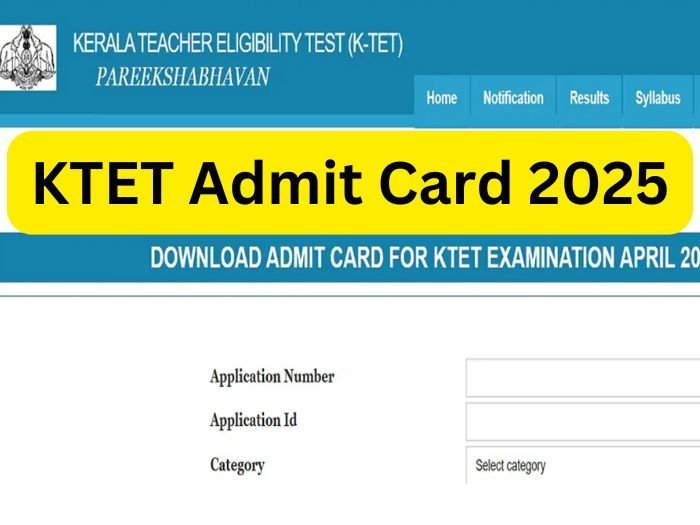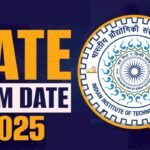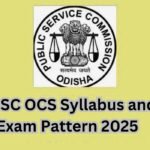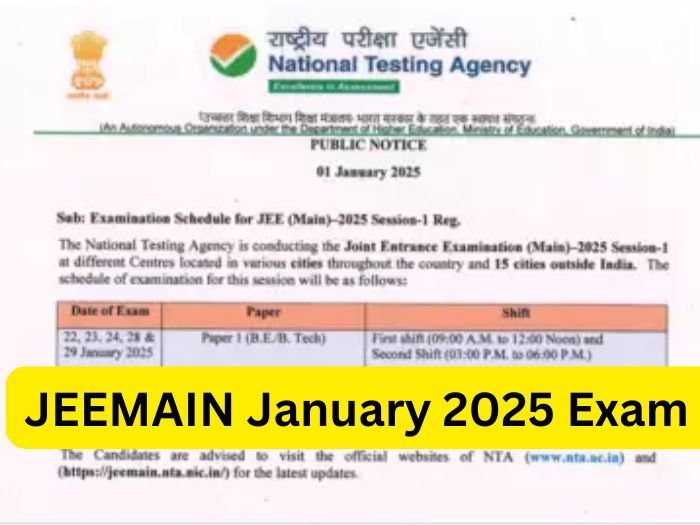KTET Admit Card 2025 Today, January 8, 2025, the Kerala Pareeksha Bhavan officially released the admit cards for the November session Kerala Teacher Eligibility test (KTET) 2025.
KTET Admit Card 2025 & Exam Date
The official website allows candidates who registered for the test to download their hall cards.According to the official schedule KTET will be held on two days in 2025, January 18 and 19. Each day will have two shifts (morning from 10 AM until 12.30 PM, and afternoon from 2 PM to 4:30 PM). The candidates must confirm their categories and shifts before the exam.
Candidates must login using their application ID and category (I/II/III/IV) to download.
The admit card must be carried by all candidates. It contains important information such. As the name of the candidate. Their roll number, time of the exam. And many other details. Candidates must. Note. that. They should contact the authorities. If. there are . Any discrepancies. With the information. Or. when. Downloading. The hall tickets.
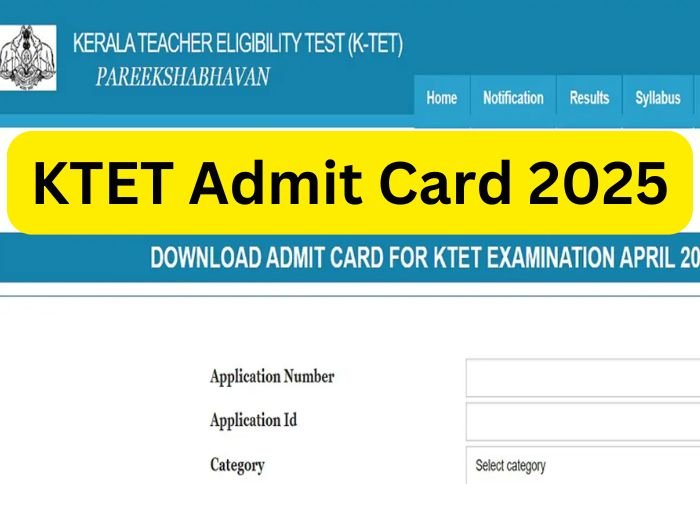
KTET Admit Card 2025 : How To Download
- You can easily access your admit card by following these steps.
- Visit the official website ktet.kerala.gov.in.
- Click the “Admit card November 2024” button on the homepage.
- Log in using your unique credentials.
- Download the admission card after submitting the required details.
- Print the admission card to use in future.
KTET Admit Card 2025 Download Here
Online access to the admit card is only available. Candidates will not receive any hard copies via postal mail.
Kerala Teacher eligibility Test Syllabus , Check Here Details
KTET Syllabus 2025 Kerala Pareeksha Bhavan is the organization that conducts the Kerala Teacher eligibility Test (KTET). The Kerala TET November cycle exam will be conducted offline, in pen-and-paper mode, on January 18th and 19. Applicants who wish to . Take part in the KTET November .
Exam should start preparing. As soon as possible. The updated syllabus and exam pattern are the most crucial aspects of the preparation strategy. This article contains Kerala TET Syllabus by subject, the marking scheme, exam length, number of questions and types of questions. This page is a bookmark to ensure you don’t miss anything important from the Kerala TET Syllabus & Exam pattern.
KTET Syllabus and Exam Pattern 2025
Pareeksha Bhavan in. Kerala conducts. The Kerala Teacher Eligibility Test twice. A years to determine. Whether. Or not aspirants have the necessary skills to teach at the Lower Primary, Upper Primaries and High Schools in Kerala. The candidate should be familiar with the KTET Exam 2025. Before. Beginning. The preparation. Below is a table that contains the Kerala TET Syllabus and Exam Pattern.
| Kerala TET Syllabus 2025- Highlights | |
| Organisation | Kerala Pareeksha Bhavan |
| Name of Examination | KTET 2025 |
| Duration of KTET Exam | 2.5 hours (for each paper) |
| Category | Syllabus |
| KTET November Exam Date | 18th and 19th January 2025 |
| Maximum Marks | 150 marks (for each paper) |
| Type of Questions | Multiple Choice Questions (MCQs) |
| Mode of Exam | Offline |
| Marking Scheme | 1 mark for each correct answer |
| Negative Marking | No negative marking for wrong answers |
| Official website | https://ktet.kerala.gov.in/ |
KTET Syllabus 2025
Kerala TET is divided into four categories:
Lower Primary Classes (Classes 1-5): KTET Category 1.
KTET Category 2 Upper Primary Classes (Classes 6 to 8).
KTET Category 3, High School Classes (Classes 9, 10)
Category 4 of the KTET for Language Classes
KTET Syllabus for Category 1 2025
Candidates preparing for KTET Category 1. Examination for Lower Primary Class (Classes 1 – 5). Should go through. The following. Syllabus. Child Development and Pedagogy, Mathematics. Environment Studies, Language I – Malayalam/ Tamil/ Kannada and Language II – English/Arabic.
KTET Exam pattern for Category 1
The KTET Category 1 exam is for teachers of lower primary classes who wish to teach grades 1 to 5.
There are 150 multiple-choice questions (MCQs).
The candidates must attempt the test in 2 hours and 30 minutes.
There is no negative marking. If you. answer. Incorrectly.
| KTET-1 Exam Pattern 2025 | |||
| Part | Subject | No. of Questions | Marks |
| 1 | Child Development and Pedagogy (relevant to age group 6-11) | 30 | 30 |
| Mathematics | 30 | 30 | |
| Environmental Studies | 30 | 30 | |
| 2 | Language I-Malayalam/ Tamil/ Kannada | 30 | 30 |
| 3 | Language II- English/Arabic**for those who intend to become Arabic Teachers | 30 | 30 |
| Total | 150 | 150 | |
KTET Syllabus Category 1 for Child Development and Pedagogy
| Section | Topics |
| Child Development and Learning (15 Questions) | Methods of studying child behaviour – observation, case study, Interview, Psychological tests etc.Concept of developmentPrinciples of growth and developmentInfluence of heredity and environment on human developmentConcept of learningBasic theories of learning: Conditioning (Pavlov, Skinner); Insight learning (Gestalt); cognitive learning (Piaget, Bruner and Vygotsky)Relation between development and learning: learner readiness of maturationPiaget, Kohlberg and Vygotsky: Constructs and critical perspectives.Concept of child-centred and progressive education – Activity-based method of Teaching and Learning, Problem Based LearningCritical perspectives of the construct of intelligence (Theories of Spearman, Guilford, Thurstone and Gardner).Language and Thought (Basic perspectives of Piaget, Chomsky and Vygotsky).Gender as a social construct: Gender roles, gender bias and educational practiceIndividual differences among learners, understanding differences based on diversity of language, caste, gender, community, religion etc.,Distinction between – Assessment for learning and Assessment of learning – school-based Assessment (Internal assessment)Continuous and comprehensive evaluation: Perspectives and practiceAssessing learner achievement – gradingPersonality development – the concept of personality and basic approaches to personality (Psychoanalytic and Trait) – Adjustment mechanisms |
| Concepts of inclusive education and understanding children with special needs (5 Questions) | Concept of exceptional childrenConcept of children with special needs (CWSN)Addressing learners from diverse backgrounds including disadvantaged and deprivedConcept of learning disability (LD) – Addressing the needs of children with learning disabilitiesAddressing the Talented, creative, specially-abled children |
KTET Syllabus Category 1 for Child Development and Pedagogy
| ng and pedagogy (10 Questions) | How children think and learn: how and why children fail to achieve success in school performanceDifferent factors influencing learning and achievementBasic process of teaching and learning: Children’s strategies of learning – Learning as a social activity – social context of learningChild as a problem solver and ‘scientific investigator’ (concept of the nature of child by Piaget, Bruner and Vygotsky)Alternative concepts of Learning in children: Understanding children’s ‘errors’ as significant steps in the learning process (Self – corrective nature of the child)Cognition and Emotions – Emotion – Basic Emotions – characteristics of childhood emotionality. Emotional Development (Bridge’s)- cognition (Thinking, Reasoning, Problems solving and Investigation)Motivation and learning – How does motivation influence learning – Maslow’s theory of motivationFactors contributing to learning – Personal and environmental Note:Emphasis should be given to questions related to classroom contexts,Classroom context should be primary level. |
KTET Syllabus Category 1 for Mathematics
| Natural Numbers | Place value, ordering, addition, subtraction, multiplication and division of natural numbers, factors and multiples, prime numbers, practical problems. |
| Fractions | Fraction of a measure such as metre, litre, gram. Fractional parts of objects. Equal fractions, Operations on fraction. Decimal representation of fractions related to metric units of length, volume, weight. Operations on decimals, practical problems. |
| Geometry | Perimeter of rectilinear figures (polygons), area of rectangles, patterns of geometrical figures, practical problems. |
| Measurements | Basic operations in solving problems involving, length, weight, capacity, time, money and practical problems. |
| Pedagogy | |
| Nature of Mathematics | Abstraction, Understanding children’s thinking and reasoning. Language of Mathematics. |
| Place of Mathematics in Curriculum | Aims and objectives of learning mathematics in primary classes – Values of mathematics learning Correlation with other subjects, Lower Primary and Upper Primary Mathematics, curriculum, syllabus |
| Mathematics – Trends and Developments | Historical development of mathematics great mathematicians and their contributions |
| Approach to Mathematics Learning | Proper learning experiences keeping in mind the characteristics of children, their natural learning capacity and the learning process Theoretical base of learning mathematics |
| Teaching of Mathematics – Strategies and Methods | Teaching strategies – Concept attainment, process oriented teaching, projects, seminars, assignments, field trip. Different teaching learning methods –Inductive and deductive method, analytic and synthetic method, project method, laboratory method |
| Learning Materials in Mathematics | Textbook and handbooks, information technology, mathematics club, mathematics laboratory, mathematics fair, mathematics library collecting mathematical puzzles, riddles. |
| Mathematics Learning – Evaluation | Concept of continuous and comprehensive evaluation, evaluation activities, grading and recording the results diagnosis, remedial teaching and error analysis. |
KTET Category 1 Syllabus for EVS
| Content |
| Prevention of soil erosion, environmental protection, impact of pollution on earth. Shelters -Types of shelters, characteristics of animal sheltersDiseases – Different types, causes, remedial measures, healthy habits food – Types, natural and artificial foods, their merits and demeritsJobs – Types, different types of tools public Institute – Services of people by public institute energy – Types, conservation of energyAnimal world – Varieties of animals, movement, food habits Earth – Ecosystem, environmental protection and impact of pollution on the earth, remedial measures. Shelters – Types and characteristics of animal shelters. Diseases – Different types of disease, causes and remedial measures. Reflection of light and shadow. |
| edagogy |
| Science – Meaning, scope, history, and role of science in human progressLearning science: Cognitive, process skills, scientific attitude, scientific application, scientific creativityAdditional activities to enhance science learning: bulletin board, science clubs, wall magazines, celebrations of science day, quiz, etc.Scientific process – steps in the scientific processDifferent process skills – Its developmental strategiesScience teaching has certain characteristicsPScience teaching approaches – nature of learning activities, assessment process, etcEnvironmental science: a multidisciplinary approachScience classes: Grading and evaluation strategyDifferent strategies for teaching science.Science teacher’s roleNeed and scope of learning aidsUnit Analysis – Comprehensive Planning –teaching ManualAnalysis of pedagogyPrimary Science Curriculum AnalysisAction ResearchGrading continuous assessment preparation of evaluation tools |
KTET Syllabus Category 1 for Language 1
| Language | Section | Topics |
| Tamil 30 questions) | Reading Comprehension – Prose (5 Questions) | Comprehension of themeInterpretationInference |
| Reading Comprehension – Poem. (5 Questions) | Comprehension of themesPoetic imagesInterpretation | |
| Pedagogical aspects of Mother tongue Education – Class – I – V (10 Questions) | Principles of Language LearningClassroom practicesInclusion of differently abled childrenMethodology of curriculum Transaction | |
| Language, Literature and culture. (10 Questions) | Books and AuthorsFunctional GrammarProverbsForms of LiteratureTamil Festivals | |
| Kannada (30 questions) | Reading comprehension – Prose (5 Questions) | Comprehension of ThemeInterpretationInference |
| Reading comprehension –Poem (5 Questions) | Comprehension of ThemePoetic images | |
| Pedagogical aspects of Kannada Language – Class 1 to 5 (10 Questions) | Principles of Language learningClassroom PracticesInclusion of differently abled childrenMethodology of curriculum transaction | |
| History of Language, Literature and Culture (10 Questions) | Idioms, Phrases and usagesFunctional grammarProverbsRhythms |
KTET Syllabus Category 1 for Langauge II
| Sections | Topics |
| Language Comprehension | Grammar: Language elements included in the Course books of standard I to V. Such as :ArticleConcordInterrogativesYes / No Questions‘wh’ – QuestionsQuestion tagsPrepositionsTense and TimeDeterminersPhrasal verbsGerundsReflexive PronounsLinkersAuxiliaries |
| Verbal ability | VocabularyInflexionsAffixes- Prefix & SuffixAntonyms, SynonymsIdioms and Phrases |
| Pedagogy of language development | Language Acquisition and LearningLearning vs acquisition – Major schools of thought .Principles of Language LearningaConstructivism – Social Constructivism – Critical Pedagogy – Error Treatment – CognitivismLanguage and ThoughtDifferent views of Whorf, Piaget, Vygotsky and Chomsky – Relationship between language and thought.Objectives of Teaching EnglishRelevance of English – Curricular Objectives.Language skills and communication skillsWays of improving language / communication skills – classroom activities – tools.ICT based aids in language teachingModern StrategiesNurturing multiple intelligenceInstruction to cater individual differences – Teaching learners with special needs.Evaluationcontinuous and comprehensive evaluation – assessment of skills and products. |
KTET Syllabus for Category 2 2025
Candidates preparing for the KTET Category 2. Examination for Upper Primary Class (Classes 6-8). Should go through the KTET 2 Syllabus. For Child Development and Pedagogy. Mathematics & Sciences. Social Science and Language I-Malayalam. Tamil/ Kannada. English. And Language II. (Other Than. Language I). Malayalam/English.
Exam Pattern 2025 of the KTET for Category 2.
Candidates preparing to become upper primary teachers (classes 6 to 8) can take the KTET Category 2.
The KTET-2 test paper contains 150 Multiple Choice Questions.
The candidates must attempt the test in 2 hours and 30 minutes.
There is no negative marking. If you. Answer. Incorrectly.
Read this also – Bihar Board Admit Card 2025 , 10th class Syllabus Check Here
| KTET-2 Exam Pattern 2025 | |||
| Part | Subject | No. of Questions | Marks |
| 1 | Child Development and Pedagogy (relevant to age group 11-14) | 30 | 30 |
| (a) For Mathematics and Science teachers: Mathematics and Science or (b) For Social Science teachers: Social Science or (c) For any other teachers (a) or (b) | 60 | 60 | |
| 2 | Language I-Malayalam/Tamil/Kannada/English | 30 | 30 |
| 3 | Language II-(Other than Language I) Malayalam/English | 30 | 30 |
| Total | 150 | 150 | |
KTET Admit Card 2025 : KTET Category 2 Syllabus for Child Development and Pedagogy
| Section | Topics |
| Child Development and Learning (15 Questions) | |
| Concept of development and its relation with learning | Growth and DevelopmentStages of developmentInfancyChild hoodAdolescenceMaturationRelationship between development, Maturation and learning. |
| Principles of development of children | Major principles of growth and developmentImplication of learning |
| Influence of Heredity and Environment | Role of Heredity and Environment on the development of childTeacher’s role |
| Socialization Process | Concept of SocializationSocial world and childrenRole of family, peers, teachers in the process of socializationPattern of social developmentErick Erikson’s theory of psychosocial development |
| Piaget, Kohlberg, Vygotsky – Constructs and Critical Perspectives | Cognitive development theory of Piaget, Kohlberg’s theory of moral developmentVygotsky’s theory of social constructivismEducational Implications. |
| Concept of child centered and progressive Education | Concept of child centerednessIndividual differenceMethods of teaching and learningActivity methodsConcept of progressive educationRole of teacher. |
| Critical perspective of the construct of Intelligence | Concept of IntelligenceTheories of intelligenceFactor theoriesS -I model of IntellectMultiple IntelligencesConcept of IQIntelligence Tests (Examples)Sternberg’s Information processing theory |
| Language and Thought | Language development – StagesTheories – Piaget, Vygotsky, ChomskyRelationship between language and thoughtApproaches to language learning and teaching |
| Gender as a social construct | Gender RolesBiasEducational practicesGender equalityTeacher’s role |
| Individual difference among learners | Understanding differences based on diversity of language, caste, gender, community, religion etcIndividual differenceSocio cultural determinants |
| Continuous and Comprehensive Evaluation | (CCE) ConceptAssessment to learningStrategiesCumulative recordsAnecdotal recordsPortfolios Assessment Techniques |
| Nature of prior learning | Readiness for learningStrategies for assessmentEncouraging critical thinkingTeacher’s role |
Pedagogy (10 Questions)
| rocess of teaching and learning | Creating Learning situationsCriteria of learning experiencesDifferent modes of learningSocial learning (Bandura)Co-operative and collaborative learningGroup discussionRole of Teacher |
| Cognitive Process and Emotions | PerceptionConcept formationThinkingImaginationReasoningInductive and deductiveProblem-solvingMemoryEmotional development – characteristicsEmotional maturityEmotional IntelligenceEmotional Quittance (EQ) |
| Motivation and Learning | LearningFactors affecting LearningTheories of LearningPavlov, Thorndike, Skinner, Gagne’s hierarchy of learning, Insightful learning (Kohler)ConstructivismPiaget, Bruner, Vygotsky, AusubelEducational Implications. MotivationConcept, types – Importance to learningTheories of motivationAbraham Maslow, McClelland |
| Personality and adjustment | ConceptApproachesType, TraitAllportMeasurement of personalityProjective and Non projective techniquesAdjustment Mechanisms |
| Inclusive Education | Addressing learners from diverse back groundsIncluding disadvantaged and deprivedLD, MR, OPH, Sensorily deprivedSocially and culturally deprivedEducational Implications/ Addressing the needs of LD. Exceptional childrenGifted, creative, specially abled childrenEducational provision – Needs, characteristicsIdentification and Remedial measures |
KTET Admit Card 2025 : KTET Syllabus for Category 3 2025
The candidates preparing. For KTET Category 3. Exam for High School Classes. Must go through the KTET. 3 syllabus for Adolescent Psychology. Theories of Learning and Teaching. Aptitude, Language: Malayalam/English/Tamil/Kannada, and Subject-specific areas (Content & Pedagogy).
Read this also – FMGE Admit Card 2024-25, Release Date & Check out the syllabus here
KTET Category 2 Exam Pattern 2025
Candidates preparing to become High School Class teachers in classes 9 & 10 can take the KTET Category 3.
The KTET-3 test paper contains 150 Multiple Choice Questions.
The candidates must attempt the test in 2 hours and 30 minutes.
There is no negative marking. If you answer. Incorrectly.
KTET Admit Card 2025 : KTET-3 Exam Pattern 2025
| Part | Subject | No. of Questions | Marks |
| 1 | Adolescent Psychology, Theories of Learning and Teaching Aptitude | 40 | 40 |
| 2 | Language: Malayalam/English/Tamil/Kannada | 30 | 30 |
| 3 | Subject-specific areas (Content & Pedagogy) | 80 | 80 |
| Total | 150 | 150 | |
| Section | Topics |
| Adolescent Psychology, Theories of Learning and Teaching Aptitude | Adolescent Psychology (10 marks)AdolescenceProblems of adolescenceDevelopmental theoriesTheories of Learning (15 marks)Theories of learningChildren with special needsNature and concept of LearningFactors affecting learningCreativityTeaching Aptitude (15 marks)TeachingTeacher RolesPersonality of the TeacherUnderstanding teaching and learningMethods and Techniques of TeachingClassroom Management |
KTET Category 3 Syllabus for Language
| Section | Topics |
| Language: Malayalam/ English/ Tamil/ Kannada | MalayalamEnglishTamilKannadaHindiArabicUrduSanskritPhysical ScienceNatural ScienceMathematicsSocial ScienceNote: The Language test (Malayalam/ English/ Tamil/ Kannada) will focus on the proficiency related to the medium of instruction. Aspirants can choose from one of the above. |
KTET 3 Syllabus 2025 for Subject-Specific Areas
| Section | Topics |
| Subject-Specific Areas (Content & Pedagogy) | The subject-specific areas will focus on the pedagogical understanding, concepts and ideas of the subjects concerned. |
KTET Syllabus for Category 4 2025
The candidates. Preparing for KTET. Category 4 must go through the KTET 4 syllabus for Child Development, Pedagogy & Teacher Aptitude, Language:
Malayalam/English/Tamil/Kannada, and Subject-specific paper (Content & Pedagogy).
KTET Admit Card 2025 : KTET Category 4, Exam Pattern 2025
Candidates preparing to teach Language classes can take the KTET Category 4.
The KTET-4 test paper contains 150 Multiple Choice Questions.
The candidates must attempt the test in 2 hours and 30 minutes.
There is no negative marking. If you answer incorrectly.
| KTET-4 Exam Pattern 2025 | |||
| Part | Subject | No. of Questions | Marks |
| 1 | Child Development, Pedagogy & Teacher Aptitude | 30 | 30 |
| 2 | Language: Malayalam/English/Tamil/Kannada | 40 | 40 |
| 3 | Subjects specific paper (Content & Pedagogy) | 80 | 80 |
| Total | 150 | 150 | |
Read this also – JEE Main City Intimation slip 2025 Date, Link at jeemain.nta.nic.in & Syllabus Check Here
KTET Category 4 Syllabus 2025
| Section | Topics |
| Child Development, Pedagogy & Teacher Aptitude | The questions in the exam will be based on understanding the characteristics, needs and psychology of diverse learners, interaction with the learners and the attributes and qualities of a good facilitator of learning. |
| Language: Malayalam/English/Tamil/Kannada | The language test (Malayalam/ English/ Tamil/ Kannada) will focus on proficiency related to the medium of instruction. |
| Subjects specific paper (Content & Pedagogy) | The subject-specific areas test will focus on the pedagogical understanding, concepts and problem-solving abilities in these subjects. The test is evenly distributed over different divisions of the syllabus of that subject as prescribed for classes 1 to 8 by SCERT Kerala. Candidates can choose the subject from one of the following:Physical EducationDrawingMusicSewingHindiArabicUrduSanskrit |
Read this also –Telangana High Court Recruitment 2025: Apply for 1673 Vacancies in District Judicial Services
